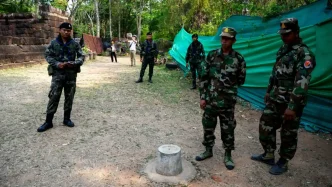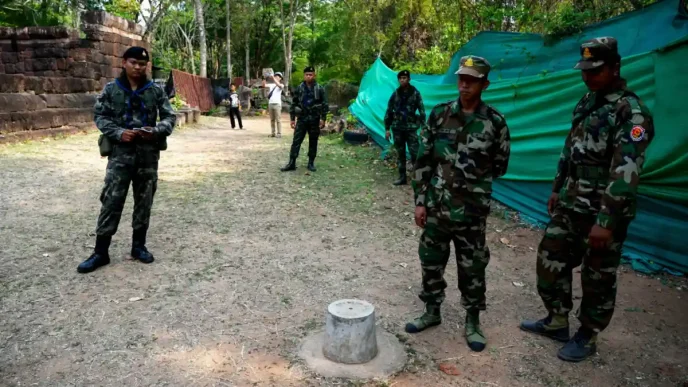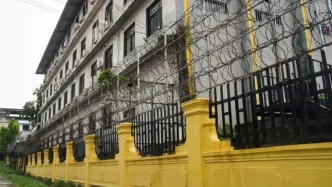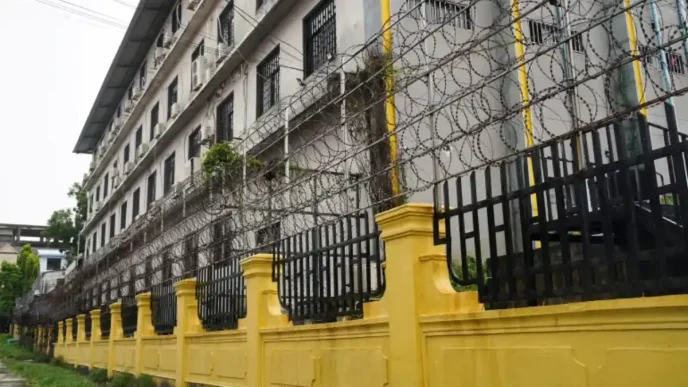In a novel approach to enhancing tourist safety, Philippine authorities are exploring the possibility of training police officers in the Korean language to better assist South Korean visitors at dedicated tourist protection desks. This initiative, spearheaded by the Presidential Anti-Organized Crime Commission (PAOCC), comes amid growing concerns over violence against Korean nationals in the country, prompting discussions on international cooperation and community involvement in law enforcement.
Language Training for Better Communication
The PAOCC, in collaboration with the Embassy of the Republic of Korea in Manila and the United Korean Community Association in the Philippines, has proposed a unique solution to bridge communication gaps between local law enforcement and South Korean tourists. During a recent meeting, both parties agreed on the potential for Korean language training for officers stationed at tourist assistance desks in key areas such as Manila, Angeles City, and Cebu.
PAOCC Executive Director Gilberto Cruz highlighted the enthusiasm from the Korean community for this initiative. “As they said, ‘If you’re able to form those tourist protection desks, we are willing to send the police officers who’ll man the desks so that they’ll learn basic Korean language'” Cruz stated during an interview on Bagong Pilipinas Ngayon. He further noted that this idea was proposed during their initial discussions and received positive feedback from Korean representatives.
The rationale behind this language training is clear: South Korea is one of the top sources of tourists to the Philippines, with thousands visiting annually for leisure, business, and cultural exchange. However, language barriers have often hindered effective communication during emergencies or when reporting crimes, leaving many visitors feeling vulnerable. By equipping officers with basic Korean language skills, authorities aim to foster trust and ensure quicker, more effective responses to incidents involving Korean nationals.
Addressing Violence Against Korean Nationals
The push for language training is part of a broader effort to curb violence against Korean visitors, an issue that has garnered attention in recent years. Reports of assaults, scams, and other crimes targeting foreign tourists, particularly in urban centers, have raised concerns among both local authorities and foreign embassies. While exact figures on incidents specifically involving Korean nationals are not publicly available, anecdotal evidence and community feedback suggest a pressing need for targeted interventions.
During their discussions, PAOCC officials and Korean representatives explored multiple strategies beyond language training. These include strengthening international police cooperation, enhancing intelligence gathering, and intensifying monitoring in high-traffic tourist areas. Cruz emphasized the importance of a collaborative approach, stating, “Solving crimes is not solely the responsibility of the police. The community is included. The dynamics we saw were good, the community helping, especially the foreigners who are here and the law enforcement agencies.”
This community-oriented perspective aligns with global trends in policing, where local and foreign stakeholders work together to address crime. In the Philippines, where tourism is a significant economic driver, ensuring the safety of international visitors is not just a matter of law enforcement but also of national reputation and economic stability.
International Cooperation and Local Impact
The collaboration between Philippine authorities and the Korean community underscores a growing recognition of the need for international partnerships in tackling transnational issues like crime against tourists. South Korea, with its advanced law enforcement training programs and expertise in community policing, offers valuable insights that could enhance local efforts. If implemented, the language training program could serve as a model for similar initiatives targeting other nationalities with significant tourist presence, such as China or Japan.
Locally, the establishment of tourist protection desks manned by language-trained officers could have a ripple effect on public safety. In cities like Cebu and Angeles, where foreign tourists often outnumber locals in certain districts, such desks could act as visible deterrents to crime while providing immediate assistance. Moreover, the initiative may encourage more community participation, as foreign residents and visitors feel empowered to report incidents without fear of miscommunication.
However, challenges remain in rolling out this program. Training police officers in a foreign language requires significant resources, including funding for instructors, materials, and time allocation. Additionally, selecting officers for such specialized roles may necessitate adjustments in deployment schedules, potentially straining already limited manpower in some regions. While the Korean community has expressed willingness to support the initiative, the specifics of their contribution—whether financial, logistical, or through personnel—remain unclear at this stage.
Broader Implications for Philippine Tourism
The Philippine government has long promoted the country as a premier tourist destination, with campaigns like “It’s More Fun in the Philippines” attracting millions of visitors annually. According to the Department of Tourism, South Korea consistently ranks among the top five source markets, contributing significantly to the sector’s revenue. In 2019, before the global pandemic disrupted travel, over 1.9 million South Korean tourists visited the Philippines, a figure that authorities are keen to surpass in the post-pandemic recovery.
Yet, safety concerns have occasionally marred this success story. High-profile incidents involving foreign nationals, coupled with broader issues of crime and corruption, have prompted calls for systemic reforms in how tourist safety is managed. The PAOCC’s latest initiative, while focused on a specific demographic, reflects a broader shift toward proactive measures that prioritize visitor experience alongside economic gains.
Critics, however, caution against viewing language training as a panacea for deeper structural issues within law enforcement. While communication is a critical barrier, underlying problems such as inadequate training in cultural sensitivity, inconsistent enforcement of laws, and limited resources for tourist-heavy areas must also be addressed. Without complementary reforms, the impact of language-trained officers may be limited to superficial improvements rather than transformative change.
Community Dynamics and Future Prospects
The involvement of the United Korean Community Association in these discussions highlights the active role that diaspora communities can play in shaping policy. In the Philippines, where foreign residents often form tight-knit enclaves, their input can provide law enforcement with nuanced perspectives on the challenges faced by their compatriots. Cruz’s acknowledgment of the “good dynamics” between the Korean community and local authorities suggests a promising foundation for sustained collaboration.
Looking ahead, the success of this initiative will depend on its execution and scalability. If the pilot program for Korean language training proves effective, it could pave the way for similar efforts targeting other languages, creating a more inclusive safety net for all tourists. Moreover, the data gathered from tourist protection desks could inform broader crime prevention strategies, benefiting not just visitors but also local communities.
Public reaction to the proposal has yet to fully emerge, but early indications from community leaders suggest cautious optimism. For many South Korean residents and tourists, the prospect of interacting with police officers who understand their language is a welcome step toward feeling safer in a foreign land. At the same time, Philippine authorities must balance this initiative with the needs of other nationalities and local citizens, ensuring that resources are allocated equitably.
As discussions between the PAOCC and Korean representatives continue, the focus remains on turning these ideas into actionable policies. Whether this language training program will mark a turning point in tourist safety or serve as a symbolic gesture depends on the commitment of all stakeholders involved. For now, the initiative stands as a testament to the power of dialogue in addressing complex social issues, offering hope for a safer, more connected future in the Philippines.
















